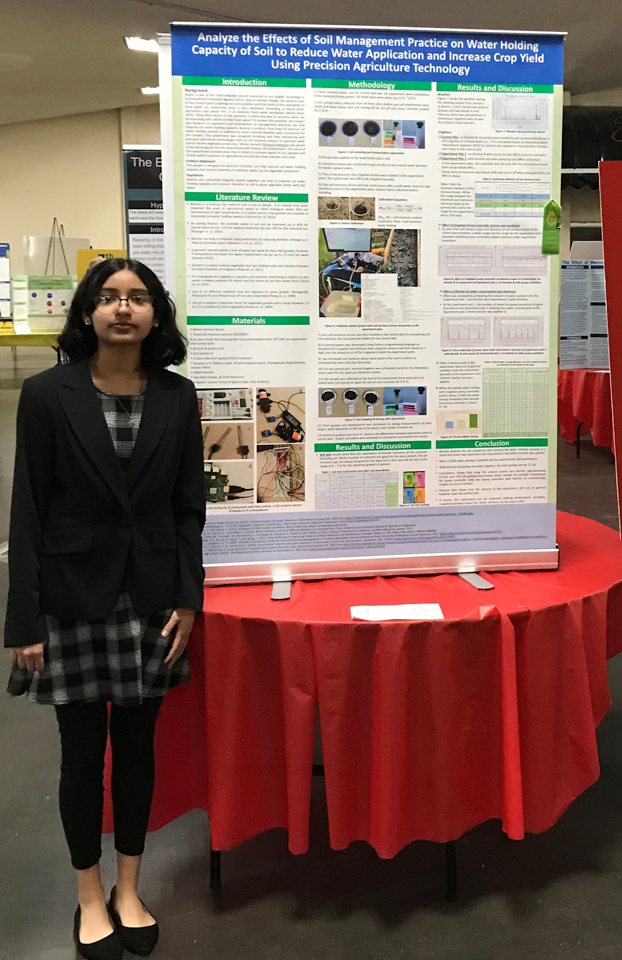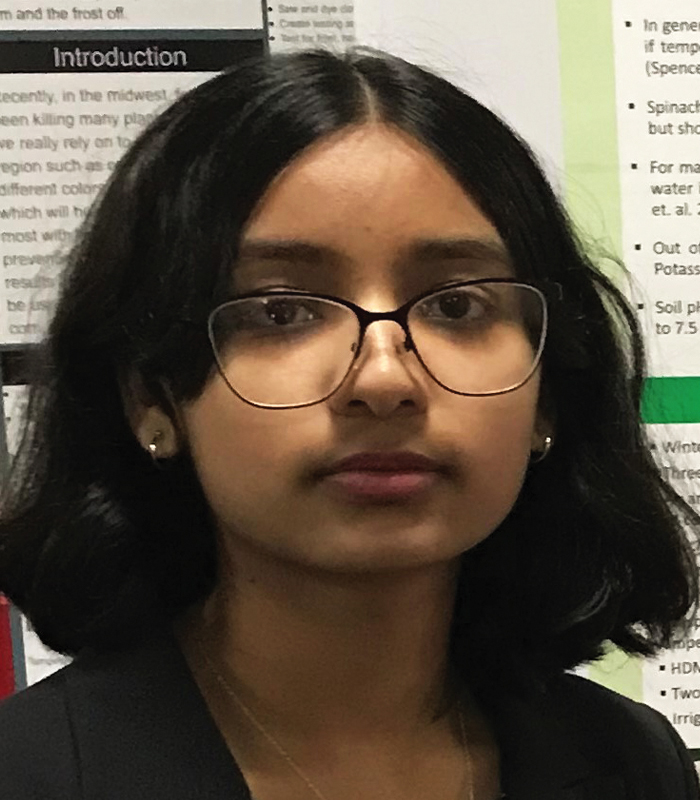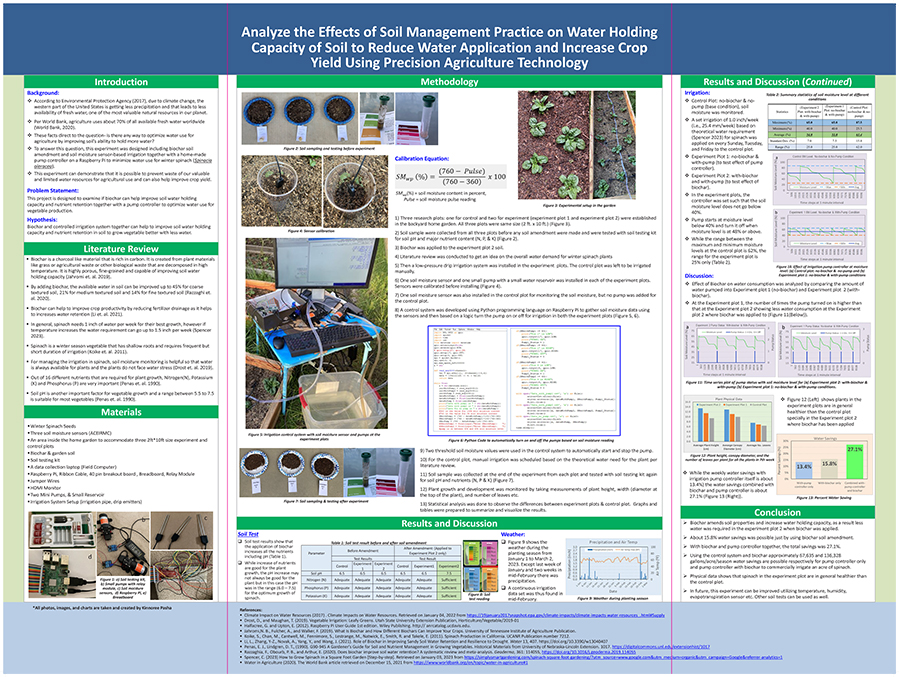Kinnoree Rabeya Pasha
8th Grade, Granite Ridge Intermediate School
Fresno, CA
Kinnoree tested ways to reduce the amount of water needed to grow plants
Analyze the Effects of Soil Management Practice on Water Holding Capacity of Soil To Reduce Water Application and Increase Crop Yield Using Precision Agriculture Technology
VIEW POSTERProject Background
Kinnoree enjoys helping her dad tend to their vegetable garden at home. “But while doing so for the last few years, I noticed it needed a lot of water for irrigation,” she says. She read about the increasing water shortage, which is especially bad in her home state of California. “Is there any way to optimize water use by improving soil’s ability to hold water?” Kinnoree wondered. So she created an automated irrigation system and changed the soil’s components to see if she could save water.
Tactics and Results
In her family’s home garden, Kinnoree set up three small plots to grow winter spinach. Each contained a moisture sensor in the soil. In the control plot, Kinnoree manually watered the plants, basing the amount on published research. In the two other plots, she set up automated irrigation systems. They watered the plants when soil moisture dropped below 40 percent and stopped when it reached 48 percent. One of these experimental plots also contained biochar. This material comes from burning organic waste material, and it improves soil’s water holding capacity and nutrient retention. Kinnoree found that the plot with the automated irrigation system used 13.4 percent less water on a weekly basis compared to the control. With both the irrigation and biochar, the plants used 27.1 percent less water per week than the control plot. Kinnoree also calculated that biochar alone would need 15.8 percent less water per week than the control. She also measured plant height, diameter and number of leaves per plant throughout the experiment. These metrics showed that her experimental plots’ plants were healthier than the control plots’. “My research can benefit growers in California and around the world,” Kinnoree says.

Beyond the Project
To estimate irrigation amount more accurately, Kinnoree says, she could add more sensors to measure temperature, humidity and water lost from soil due to evaporation and plant transpiration.
Other interests
Kinnoree likes to dance and play violin and piano. She’s been learning the classical Indian dance Bharatanatyam since she was nine years old. “This dance helps me express myself through my body, while finding a connection to the roots of my ancestors,” she says. Kinnoree would like to become an ophthalmologist to help people with their vision.


